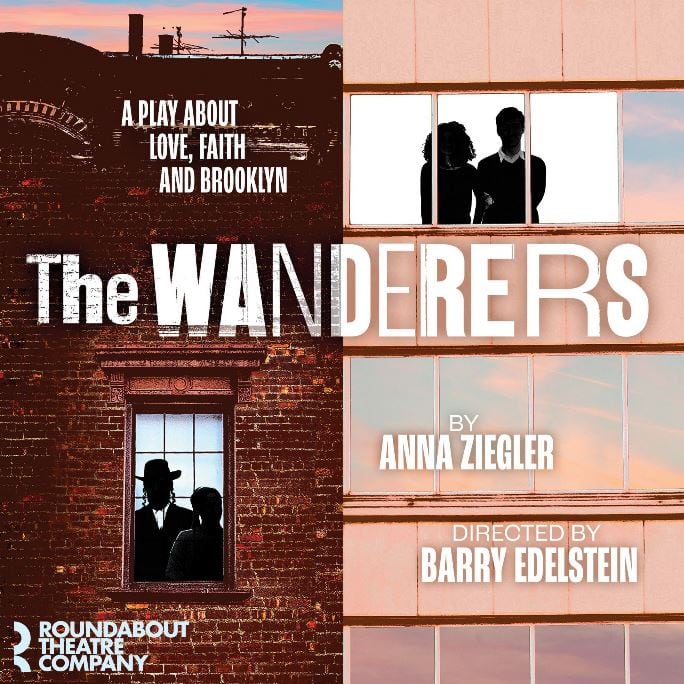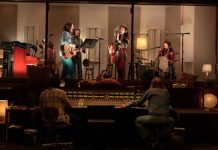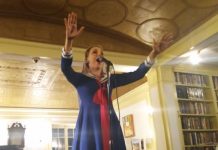Playwright Anna Ziegler returns to Roundabout Theatre Company with the New York premiere of The Wanderers, recounting chapters in the broken marriages of two Jewish couples – one Hasidic, one secular – of different generations in Brooklyn, from 1973-2017. Directed by Barry Edelstein, the wordy narrative, in which books and writing play a central role, moves back and forth in time, alternating between the two relationships, through a series of increasingly heavy conversations with occasional laughs and minimal action to explore the impact of religious identity and family, discontent and restlessness, the subjugation of women and the changing times on their dissolving unions, including two revealing plot twists that tie the storylines together.
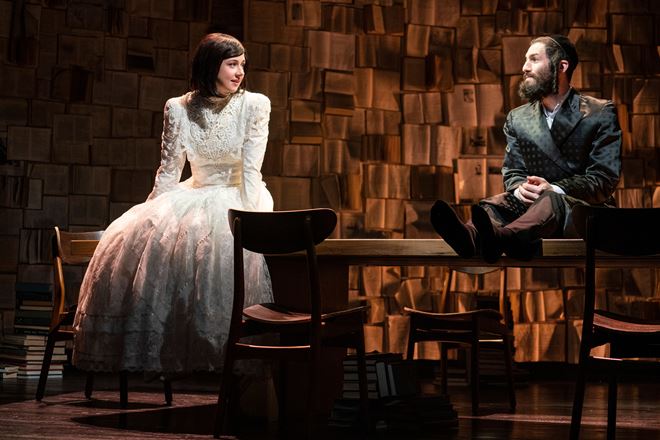
Schmuli (Dave Klasko) and Esther (Lucy Freyer) are members of the older generation and the strict Satmar Hasidic community that upholds the law of the Torah, including their arranged marriage. While he dutifully embraces the Orthodox attire (costumes by David Israel Reynoso; hair and wigs by Tommy Kurzman), traditional constraints on women, and strictures against contraception, she wants to explore new opportunities in life and to cease having more children by taking the pill. Her free-spirited desire for greater freedom and different experiences results in painful ramifications initiated by Schmuli that shatter their family and drive her away.
Non-practicing Jews Abe (Eddie Kaye Thomas) and Sophie (Sarah Cooper), dating since high school, are both novelists. His flourishing career has captured the attention of movie star Julia Cheever (Katie Holmes, in her Roundabout debut), who attended one of his lectures, expressed her appreciation of his talent, and inflated his ego. His wife, also an extremely skilled writer, is frustrated at not having achieved the same level of success and might want another child. He doesn’t, preferring to carry on flirtatious and soul-baring email exchanges with his famous fan to forget the traumas he carries with him, resulting in a fracture, and potential infidelity, in his marriage.
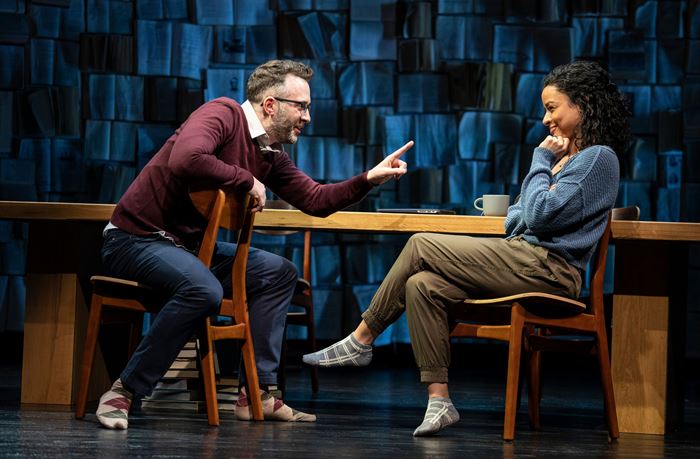
The cast – with a stand-out performance by the consistently compelling Freyer, providing moments of comic relief and profound despair – slowly relays the personalities and backstories of the characters through direct-address comments, dialogues, brief enactments, and readings of what they’ve written. With the notable exception of the largely even-tempered and noncommittal Julia (appropriately embodied by Holmes, for reasons that will eventually be disclosed – no spoiler here!), they become more emotionally expressive as the narrative progresses, with explosive outbursts that signal the end of the strained relationships and add touches of drama to the basic staging (of the couples alternately entering and exiting), enhanced by Kenneth Posner’s evocative lighting and original music and sound by Jane Shaw.
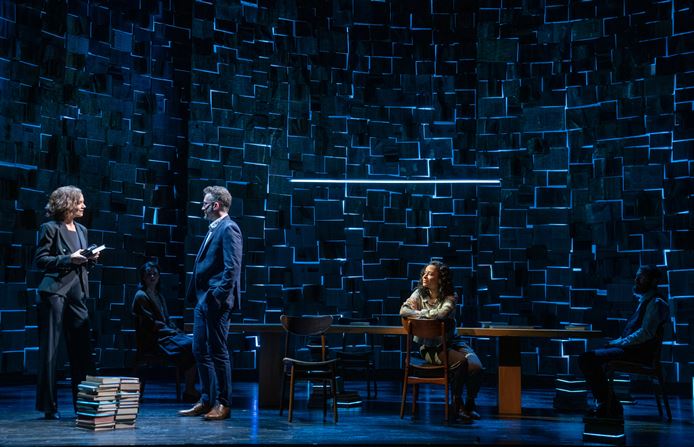
Marion Williams’ scenic design supports the literary conceit of the work, with a curving back wall constructed of open volumes, stacks of books around the floor, a long library table with chairs, and projections between scenes of the numbers and titles of the chapters, suggesting that they’re all part of a memoir in progress, with which the writer can take artistic license, “re-see” the unpleasant episodes, and rewrite a happy ending. The Yiddish phrase “Ein ba’al ha-nes makir b’niso” (“A person in the middle of a miracle doesn’t see it at the time”) is repeated by different characters throughout the story, and the unexpected conclusion, looking back on a simple joyous moment from the past, serves as a reminder to find the beauty in what you have, when you have it.
It’s a positive message, but one that oddly conflicts with the situations of the women, who were controlled by their husbands, then made the bold and difficult decision to break free, to take charge of their own lives, and to find fulfillment, not to sacrifice themselves for the memory of a few minutes of fun in the freezing cold snow. In the end, the upbeat resolution of The Wanderers left me wondering.
Running Time: Approximately one hour and 40 minutes, without intermission.
The Wanderers plays through Sunday, April 2, 2023, at Roundabout Theatre Company, performing at the Laura Pels Theater in the Harold and Miriam Steinberg Center for Theatre, 111 West 46th Street, NYC. For tickets (priced at $80-157, including fees), call (212) 719-1300, or go online. Masks are not required.


